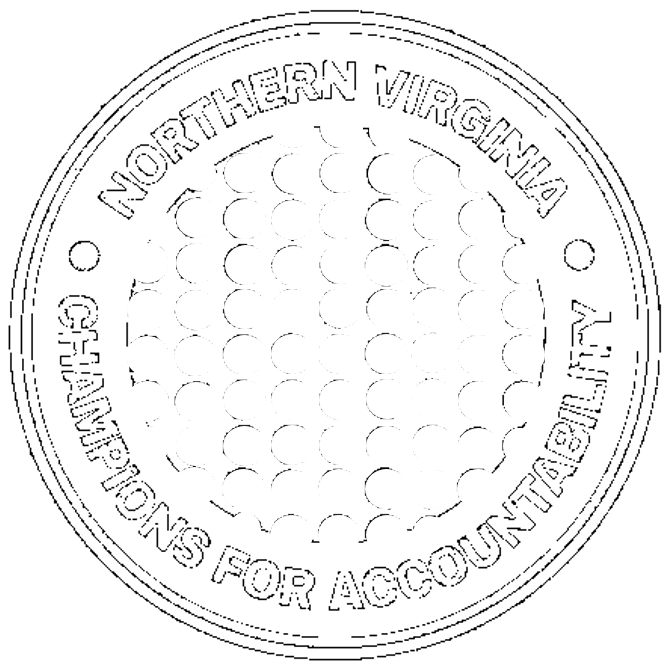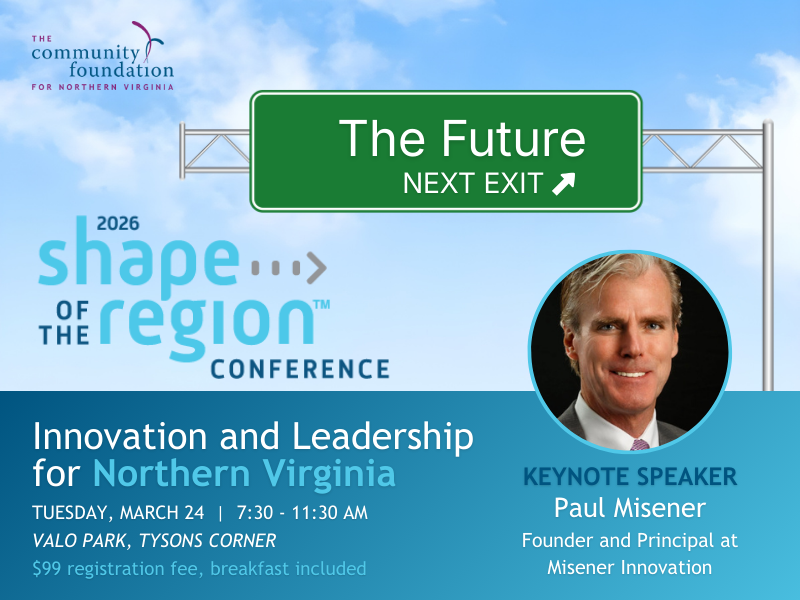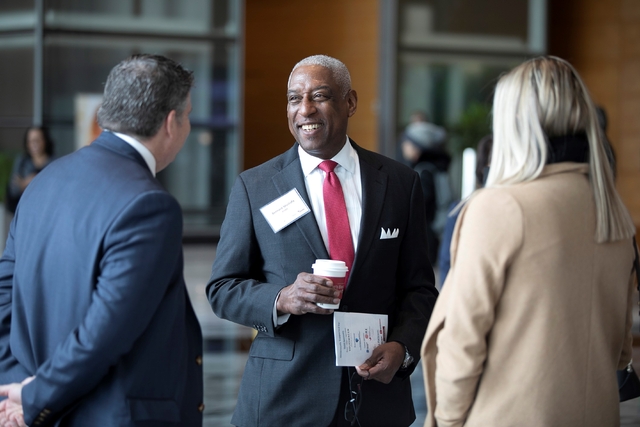 Economic mobility was center-stage at Community Foundation for Northern Virginia’s 2019 Shape of the Region Conference on March 7, 2019.
Economic mobility was center-stage at Community Foundation for Northern Virginia’s 2019 Shape of the Region Conference on March 7, 2019.The Community Foundation for Northern Virginia, in partnership with the Northern Virginia Chamber of Commerce, the Northern Virginia Regional Commission and the Northern Virginia Technology Council used their 2019 Shape of the Region conference on March 7 to present a strong argument that there is a “Business Case for Economic Mobility” if Northern Virginia is to continue to thrive in the future.
Keynote speakers Nisha Patel and Brent Orrell brilliantly explained that economic mobility, or the ability of an individual or family to improve their economic status, is a complex challenge in our country, and our region.
"Poverty is not just about a lack of money, it's also about a lack of power," said Patel, managing director at Robin Hood, a New York foundation fighting to end poverty.
Orrell, a resident fellow at the American Enterprise Institute told the nearly 300 gathered that the opportunity gap is made more pronounced by a lack of technical and educational skills that are necessary for better job opportunities. He believes job training is one way to close the economic gap that persists in many communities, but that public support for skills training isn’t strong.
“Americans are helpful boot-strappers, happy to assist but they want sweat-equity.”
The “Tech Talent Pipeline” panel discussion moderated by Bobbie Kilberg, president and CEO of the Northern Virginia Technology Council focused on education and job-training issues like apprenticeships, internships, STEM education initiatives, and information technology education programs at Northern Virginia Community College.
During that session, John Wood, CEO and Chairman at Telos Corporation, a leading provider of continuous security solutions for organizations said internships and apprenticeships need to be “structured and well-designed” for success.
“Telos internships are designed to give students meaningful work experiences that not only provide real value to our company but will better prepare students for the workforce after graduation.”
Julie Coons, President and CEO of the Northern Virginia Chamber of Commerce, led a second panel discussion “Moving Ideas into Practice” that highlighted examples and ideas for how the Northern Virginia region can improve economic mobility across all sectors.
Panelist David Remick, executive director at Alexandria/Arlington Regional Workforce Council observed that a partnership between business, institutions of learning, and the community are key ingredients to ensure every business has access to a “qualified, job-ready workforce and every resident has the skills needed to connect with meaningful employment and advance in a career.”
Karla Bruce, chief equity officer, Fairfax County said local government has a dual role to play in this equation as government and as a provider of many of the programs and the policies that can impact economic mobility, “as the major employer in the county. we need to lead by example.”
Robert Lazaro, executive director, Northern Virginia Regional Commission made the closing remarks announcing a new partnership with Community Foundation called the “One Region” initiative that will launch later this year.
“the success and failures, economic and otherwise, are all linked and rely on everyone’s efforts to achieve the outcomes wanted,” Lazaro said.
It was an impressive show of focus, effort and progress, and a testament to all that can be accomplished when we come together around a common understanding and purpose to move our region forward!
If you missed Shape of the Region, power points from the program are available here. You can also view photos from the event.

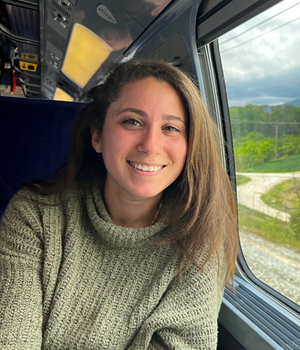 Questions?
Questions?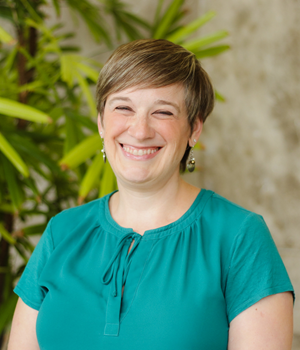 Questions?
Questions?


